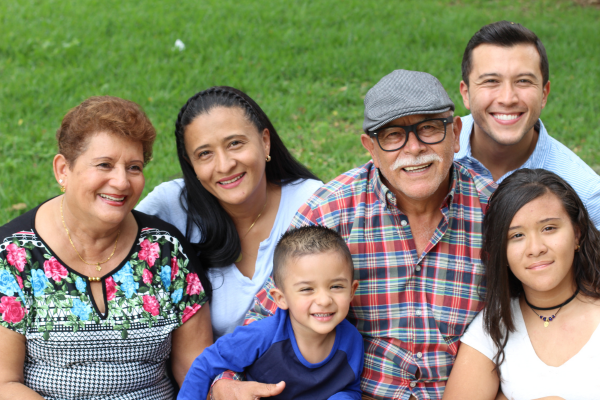
Balancing Humility in Family Life
Finding the Right Balance for Successful Families

Humility is the ability to recognize and accept our own limitations while acknowledging the worth of every family member.
What happens, though, if humility is overdeveloped or underdeveloped?
As with all virtues that we have, when they get out of balance, the virtue does not serve us or others well. Let’s delve into the concept of humility and explore how it can be overdeveloped or underdeveloped, as well as which virtues can help maintain its balance.
Overdeveloped Humility:
-
- Self-Neglect: An overdeveloped sense of humility may cause individuals to consistently put others’ needs and desires before their own, often to the detriment of their well-being. They may neglect their own physical, emotional, or financial needs.
- Difficulty Accepting Help: Excessive humility can make it challenging for individuals to accept help or support from others, even when they genuinely need it. They may fear burdening others or appearing weak.
- Ineffectual Communication: Overly humble individuals might struggle to assert themselves or express their thoughts and feelings. This can hinder healthy communication and lead to misunderstandings.
- Insecurity: Constant self-effacement can foster feelings of inadequacy or insecurity, as individuals may perceive themselves as unworthy of recognition or praise.
- Failure to Set Boundaries: Those with an overdeveloped sense of humility may find it difficult to set boundaries, leading to situations where they feel taken advantage of or overwhelmed.
Underdeveloped Humility:
-
- Arrogance: Individuals with underdeveloped humility may believe they are always right and dismissive of others’ viewpoints, leading to conflicts and strained relationships.
- Entitlement: An absence of humility can result in a sense of entitlement, where individuals believe they are owed special treatment or privileges.
- Lack of Empathy: Underdeveloped humility can make it difficult for individuals to empathize with the struggles and needs of others, as they are primarily focused on themselves.
- Avoiding Responsibility: Those lacking humility may find it challenging to admit their mistakes, apologize, or make amends when they have caused harm to others.
- Boastfulness: Instead of being thankful for their achievements, individuals with underdeveloped humility often excessively brag and self-promotion.
Balancing Virtues:
To keep the virtue of humility in balance, several other virtues can be particularly helpful:
-
- Courage: Courage empowers individuals to assert themselves when necessary, ensuring they don’t neglect their needs.
- Self-Respect: A healthy sense of self-respect reminds individuals that they deserve care and consideration, too, preventing self-neglect.
- Gratitude: Gratitude encourages individuals to acknowledge their worth and the value they bring to others, fostering a positive self-image.
- Empathy: Empathy fosters an understanding of others’ feelings and perspectives, making it challenging to dismiss them arrogantly.
- Accountability: Accountability for one’s actions and mistakes is essential in preventing the avoidance of responsibility that underdeveloped humility can lead to.
Humility is a powerful virtue when held in balance, but it can be problematic when taken to extremes in either direction. Embracing courage, self-respect, gratitude, empathy, and accountability can help individuals channel their humility effectively and make a positive difference in the world while staying grounded in the reality of the human experience.
Applying these concepts in family life can create a positive and nurturing environment. Let’s explore how these principles can be applied in a balanced way in the family:
Overdeveloped Humility in a Family:
Overdeveloped humility within parents can lead to self-neglect, ultimately impacting their ability to nurture their children effectively. Here’s what overdeveloped humility might look like in a family:
-
- Self-Neglect: Parents may consistently prioritize their children’s needs to the detriment of their own well-being. This can result in exhaustion, stress, and neglect of their physical and emotional health.
- Difficulty Accepting Help: Overly humble parents may resist seeking support from others or even their partners, fearing that they should be able to handle everything on their own.
- Lack of Effective Communication: Excessive humility might hinder open communication between parents, making it challenging for them to express their feelings, concerns, or needs to each other.
- Neglecting the Partnership: Overdeveloped humility can lead to parents neglecting their partnership. They may put their relationship on the back burner, believing their children’s needs should always come first.
- Failure to Set Boundaries: Parents may struggle to set boundaries with their children, leading to burnout and difficulties in disciplining and guiding them effectively.
Underdeveloped Humility in a Family with Children:
On the other end of the spectrum, underdeveloped humility can manifest as ego-driven parenting, where parents prioritize their own desires and interests over their children’s well-being. Here’s what underdeveloped humility might look like:
-
- Arrogance: Ego-driven parents may dismiss their children’s opinions or feelings, believing that they always know what’s best.
- Entitlement: An absence of humility can make parents feel entitled to have their way, disregarding their children’s needs and preferences.
- Lack of Empathy: Underdeveloped humility can hinder parents’ ability to empathize with their children’s struggles or emotions, leading to misunderstandings and emotional distance.
- Avoiding Responsibility: These parents may find it challenging to admit they are wrong or apologize to their children for making a mistake.
Balancing Humility:
To prevent overdeveloped humility, parents can integrate these practices into their family life:
-
- Self-Care: Prioritize self-care to maintain physical and emotional well-being, ensuring you have the energy and resilience needed for effective parenting.
- Effective Communication: Encourage open communication with your partner to express your thoughts, feelings, and needs without fear. A strong partnership is crucial for effective parenting.
- Setting Boundaries: Establish clear boundaries with your children to maintain a healthy balance between their needs and yours.
To prevent underdeveloped humility, parents can integrate these virtues into their family life:
-
- Empathy: Foster empathy to understand your children’s feelings and needs, making parenting more compassionate and effective.
- Accountability: Be accountable for your actions and decisions as a parent. Acknowledge your mistakes and apologize when necessary, teaching your children valuable lessons in humility.
- Gratitude: Cultivate gratitude to appreciate the joys and challenges of parenthood, without resorting to ego-driven parenting.
Humility is a central virtue in family life with children, but it should not be the sole focus. Balancing humility with other virtues like self-care, effective communication, setting boundaries, empathy, accountability, and gratitude is essential.
Prioritizing self-care and nurturing a strong partnership between parents should remain foundational principles. By doing so, parents can cultivate humility in their own lives while providing a loving and balanced environment for their children. This equilibrium ensures that children grow up in a family that values individual well-being and the importance of raising compassionate and empathetic individuals.
I invite you to sign up for our newsletter. It is a great way to get the Virtue of the Month and tips on relationships, parenting, and self-care. In addition, you’ll be the first to know about upcoming classes for successful families.
To sign up, visit the “Newsletter” section here on the website. Enter your email address, and you’ll receive our newsletter in your inbox on Wednesdays. I appreciate your interest in bringing out the best in your children and yourself. We look forward to keeping you informed through our newsletter!


